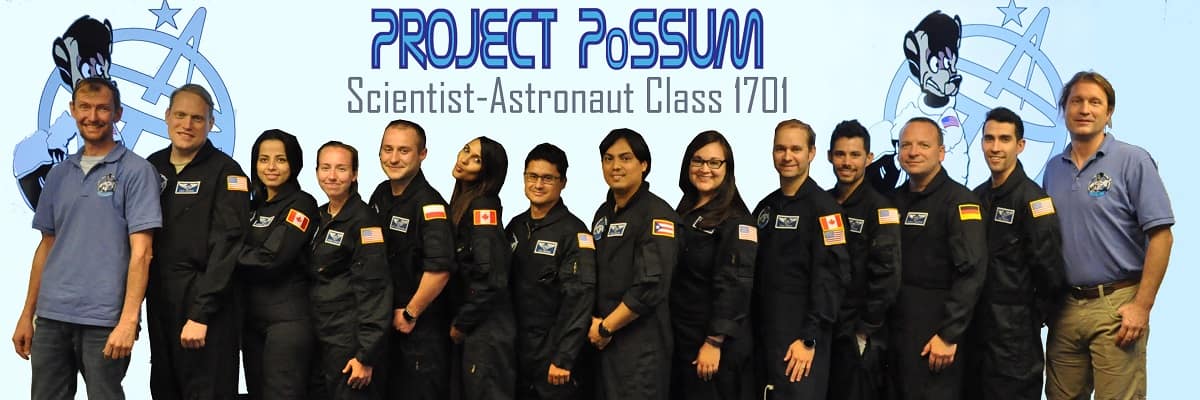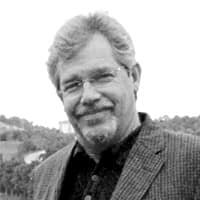Project PoSSUM Graduates Twelve Scientist-Astronaut Candidates at Embry-Riddle’s Daytona Beach Campus

PoSSUM, an acronym for Polar Suborbital Science in the Upper Mesosphere, uses research aircraft, high-altitude balloons, and commercial suborbital spacecraft to study rare “space clouds” called noctilucent clouds. These elusive clouds can help scientists address critical questions about Earth’s climate, but can only be studied in the upper atmosphere from polar latitudes during a small window of time in the summer. Project PoSSUM also conducts bioastronautics research, spacesuit-related technology development, and educational outreach missions.
The PoSSUM Scientist-Astronaut program, designed by former NASA astronaut instructors and hosted by Embry-Riddle gives its candidates the skills to effectively conduct research on commercial space vehicles as part of international research campaigns. The program is an intense training curriculum that covers atmospheric science, remote sensing, celestial mechanics, particle scattering, spaceflight physiology and PoSSUM instrument operations.
In addition, the students received comprehensive spacesuit training, mission simulation training, high-altitude and hypoxia awareness training, and aerospace physiology training in analog flight conditions. Contributing to PoSSUM Class 1701 were retired NASA astronauts Winston Scott and Nicole Stott, world-champion aerobatic pilot Patty Wagstaff, and Sci-Art Exchange Executive Director Dr. Jancy McPhee.
“The practical experience that Capt. Winston Scott, Patty Wagstaff, and Nicole Stott contributed greatly helped these PoSSUM students appreciate the complexities of spacesuit operations, the physiological strains of extreme aerospace environments, and the necessity of human components and artistic expression to communicate science,” said PoSSUM Executive Director Dr. Jason Reimuller. “These are all essential elements of the PoSSUM mission.”
The new PoSSUM graduates will become involved with existing research programs to study the upper atmosphere, evaluate IVA and EVA spacesuits, and participate in educational outreach and technology development programs in preparation for airborne and suborbital research missions. This summer, PoSSUM graduates will image noctilucent clouds from research aircraft in Northern Alberta with cameras designed for a high-altitude balloon campaign over Antarctica later this year.
This October the PoSSUM team will conduct the first visor-down, zero-G parabolic flight tests in Ottawa, Ontario as well as test the ability of the suit to perform a variety of post-landing contingency operations as part of the PoSSUM Bioastronautics Program.
The twelve graduating candidates of Scientist-Astronaut Class 1701 include: Kristen Sanfilippo of Pensacola, FL.; Scott Ritter of Philadelphia, Penn.; Angel Samalot of Waco, Tex.; Keith Crooker of Burnsville, Minn.; Nirvani Umadat of Winnepeg, Manitoba; Stephan Guenther of Liechlingen, Germany; Matt Harasymczuk of Katwijk aan Zee, Poland; Trent Tresch of Stanwood, Wash., Maryam Nabavi of Toronto, Ont.; Renee Garifi of Huntsville, Ala.; Ryan Kobrick of Daytona Beach, Fla.; and Jose Hurtado of El Paso, Tex.
Twelve new candidates will be selected for PoSSUM Scientist-Astronaut Class 1702, which will take place at Embry-Riddle in October 2017. Interested individuals should apply online at www.projectpossum.org.
MEDIA CONTACTS
Dr. Jason Reimuller, Executive Director, Project PoSSUM, Boulder, Colo.; Office: (720) 352-3227; jason.reimuller@projectpossum.org
James Roddey, Communications and Media Relations Manager, Embry-Riddle Aeronautical University, Daytona Beach, Fla.; Office: (386) 226-6198; james.roddey@erau.edu
About Project PoSSUM
Project PoSSUM, a 501(c)(3) non-profit organization, is the first manned suborbital research and education program and is devoted to the study of the upper atmosphere and the role it plays in the understanding of the global climate. The PoSSUM Scientist-Astronaut Candidate Program and Advanced PoSSUM Academy are held at the Embry-Riddle Aeronautical University in Daytona Beach, Fla. PoSSUM Instrumentation is funded by NASA and will be flown first in PoSSUM research aircraft and later over Antarctica in 2017 as the ‘PMC-Turbo’ experiment. The PoSSUM Noctilucent Cloud Tomography Experiment is supported by NASA's Flight Opportunities Program as the ‘Noctilucent Cloud Imagery and Tomography Experiment,’ granted in March 2012 and PoSSUM students train to fly this suborbital mission while preparing for aeronomy, bioastronautics and educational outreach missions. For more information, visit projectpossum.org or follow us on www.facebook.com/projectpossum.

 James Roddey
James Roddey